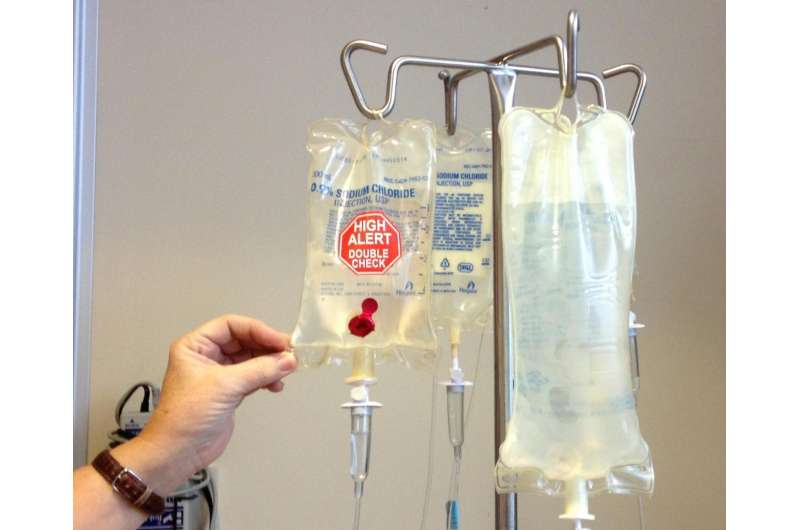Monoclonal antibody drug superior to chemotherapy for advanced acute lymphoblastic leukemia

A Phase III clinical trial involving 101 centers in 21 countries revealed the monoclonal antibody blinatumomab to be more effective than standard chemotherapy for treatment of advanced acute lymphoblastic leukemia (ALL). Study findings were published in the March 1 online issue of theNew England Journal of Medicine.
The study, led by The University of Texas MD Anderson Cancer Center, randomly assigned 405patients18 years or older to groups receiving either blinatumomab orchemotherapy. Overall survival was significantly longer in the blinatumomab group with median survival of 7.7 months versus four months for those on chemotherapy. Remission rates within 12 weeks after treatment began were higher in the blinatumomab group with complete remission rates of 34 percent reported in this group versus 16 percent for those on chemotherapy. The study also showed that patients treated with blinatumomab had a lower rate of adverse effects.
While the prognosis for newly diagnosed ALL has improved over the last three decades with intensive chemotherapy regimens resulting in complete remission rates of 85 to 90 percent and long-term survival rates of 30 to 50 percent, most adult patients with the B-cell precursor ALL, the most common form, ultimately relapse and die from disease complications. The accepted standard of care is to help the patient maintain remission long enough to receive allogeneic or donor stem-cell transplantation, considered the most effective therapy.
"Among adults with relapsed ALL, remission rates are18 to 44 percent with standard chemotherapy but the duration of remission is typically short. A major goal for these patients is to induce remission with sufficient duration to prepare for stem-cell transplantation," said Hagop Kantarjian, M.D., chair of the Department of Leukemia, and lead author for theNew England Journal of Medicinepaper. "In this study, 24 percent of patients in each treatment group underwent allogeneic stem cell transplantation."
Blinatumomab, developed by Amgen, works by binding simultaneously to specific cytotoxic T-cells and B-cells, which allows the patient's healthy T-cells to recognize and eliminate cancerstem cellscalled blasts.
"The activity of an immune-based therapy such as blinatumomab, which depends on functioning T-cells for its activity, provides encouragement that responses may be further enhanced and made durable with additional immune activation strategies," said Kantarjian.
The study, designed and funded by Amgen, did not include patients who had other active cancers, relevant central nervous system conditions, autoimmune disease, acute or chronic graft-versus-host disease, chemotherapy or radiotherapy within two weeks before the study, donor stem cell transplantation within 12 weeks before the trial or autologous stemcell transplantationwithin six week preceding the study. Patients who received immunotherapy in the month before the trial or who were undertaking other investigational treatments were also excluded.













